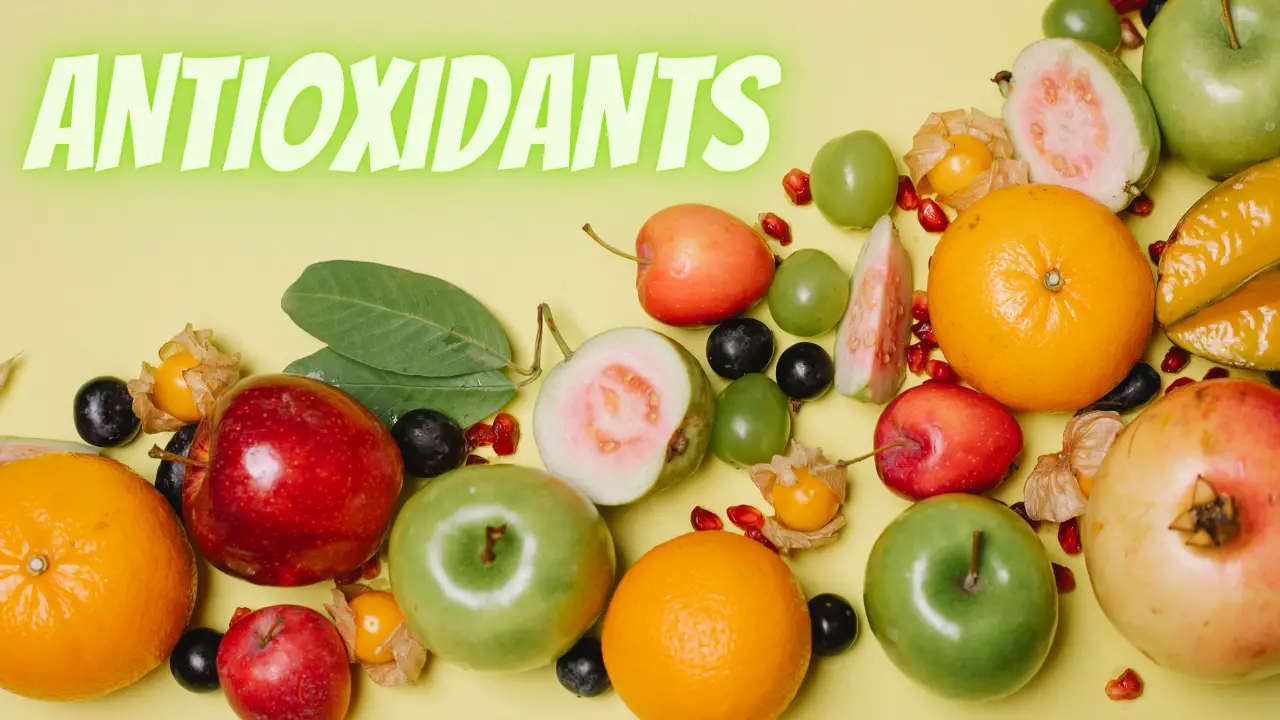Physical Address
304 North Cardinal St.
Dorchester Center, MA 02124
Physical Address
304 North Cardinal St.
Dorchester Center, MA 02124

Antioxidants are like bodyguards, protecting our cells from dangerous troublemakers known as free radicals. These troublesome free radicals can harm our cells and create health issues. To maintain good health, it's essential to understand what antioxidants are, where to find them, and how they contribute to our well-being. In this article, we will explore the meaning , their importance, and their types.
Antioxidants are natural substances that protect our bodies. They defend the cells against harm caused by free radicals. These free radicals can damage our cells and are associated with various health issues, including the aging process, cancer, and heart ailments. They have a vital role in preserving overall well-being, bolstering our immune system, fostering healthy skin, and lowering the risk of chronic illnesses. They are commonly found in various foods, especially colorful fruits, vegetables, nuts, and certain beverages like tea and coffee.
Some antioxidants are vitamins. For instance, vitamin C can be found in oranges and helps keep our skin healthy and our immune system strong. On the other hand, vitamin E, found in nuts and seeds, acts like a shield, protecting our cells from harm.
Minerals, like selenium, which is present in nuts and seafood, also work as antioxidants. They support our immune system and perform other important jobs in our bodies.
Many antioxidants come from plants, and they're like the colorful defenders of our health. These include flavonoids in berries and tea, carotenoids in foods like carrots and sweet potatoes, and polyphenols in dark chocolate. They not only make our meals look appealing but also keep our cells safe and sound.

Make it a habit to include a vibrant array of fruits and vegetables on your plate. Different colors often indicate the presence of various antioxidants. These colorful foods not only brighten your meals but also offer a variety of health benefits.
Incorporate nuts and berries into your daily snacking routine. A handful of mixed nuts provides a satisfying crunch while delivering antioxidants like vitamin E and selenium. Fresh berries, whether enjoyed as a topping for yogurt or a standalone snack, offer a burst of antioxidants like vitamin C and various phytochemicals.
Opting for a small piece of dark chocolate. Dark chocolate with a high cocoa content is a way to introduce antioxidants into your diet. It contains flavonoids, which have been associated with cardiovascular benefits and may support overall well-being.
In conclusion, antioxidants act as shields, safeguarding your cells from the harmful effects of free radicals. By incorporating a rainbow of colorful fruits and vegetables, snacking on nuts and berries, enjoying tea, spicing up your meals, and indulging in the occasional dark chocolate treat, you can easily infuse your diet with these health-promoting agents. Antioxidants not only protect your cells but also bolster your immune system, promote radiant skin, and reduce the risk of chronic diseases.
Yes, it may help protect against age-related conditions such as cognitive decline, macular degeneration, and heart disease.
Gentle cooking methods like steaming or microwaving can help retain more antioxidants in vegetables compared to boiling or frying, which may cause some loss.
While it play a role in reducing cancer risk, they should not be considered the sole preventive measure. A well-rounded lifestyle, including a balanced diet and regular screenings, is essential for cancer prevention.
Some antioxidants ,particularly vitamin C, may have a mild anti-inflammatory effect and could potentially help with allergies and asthma symptoms.